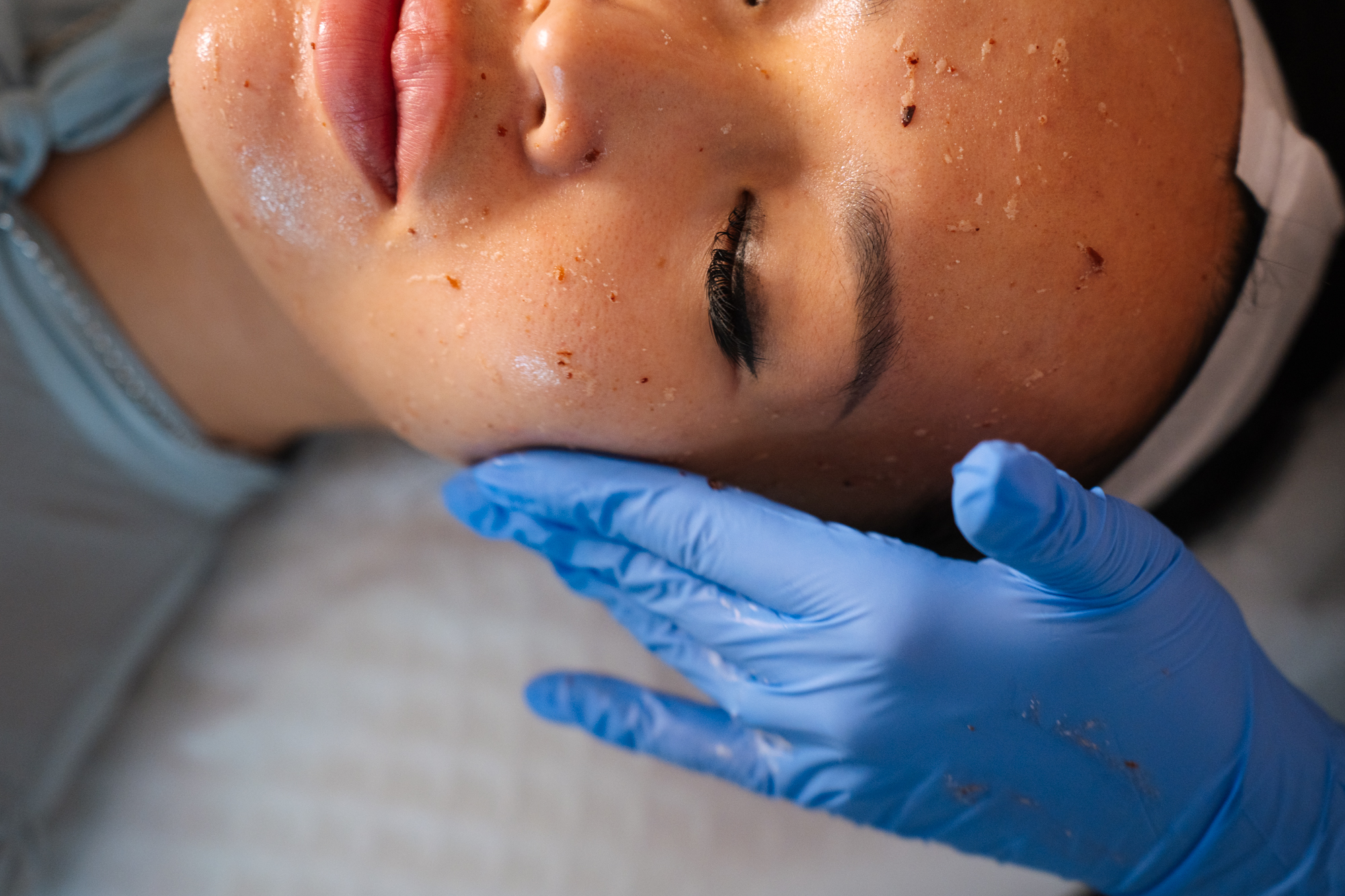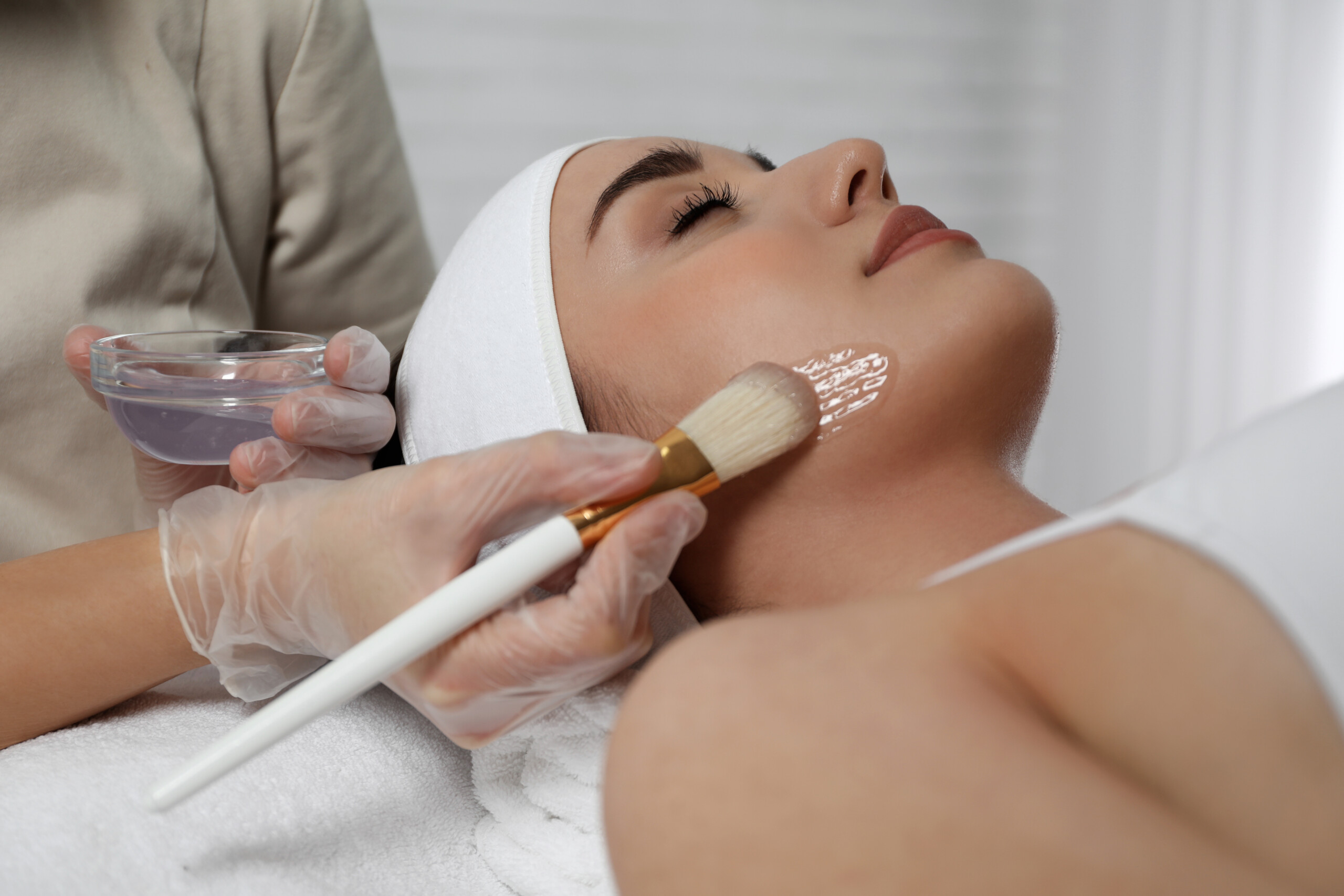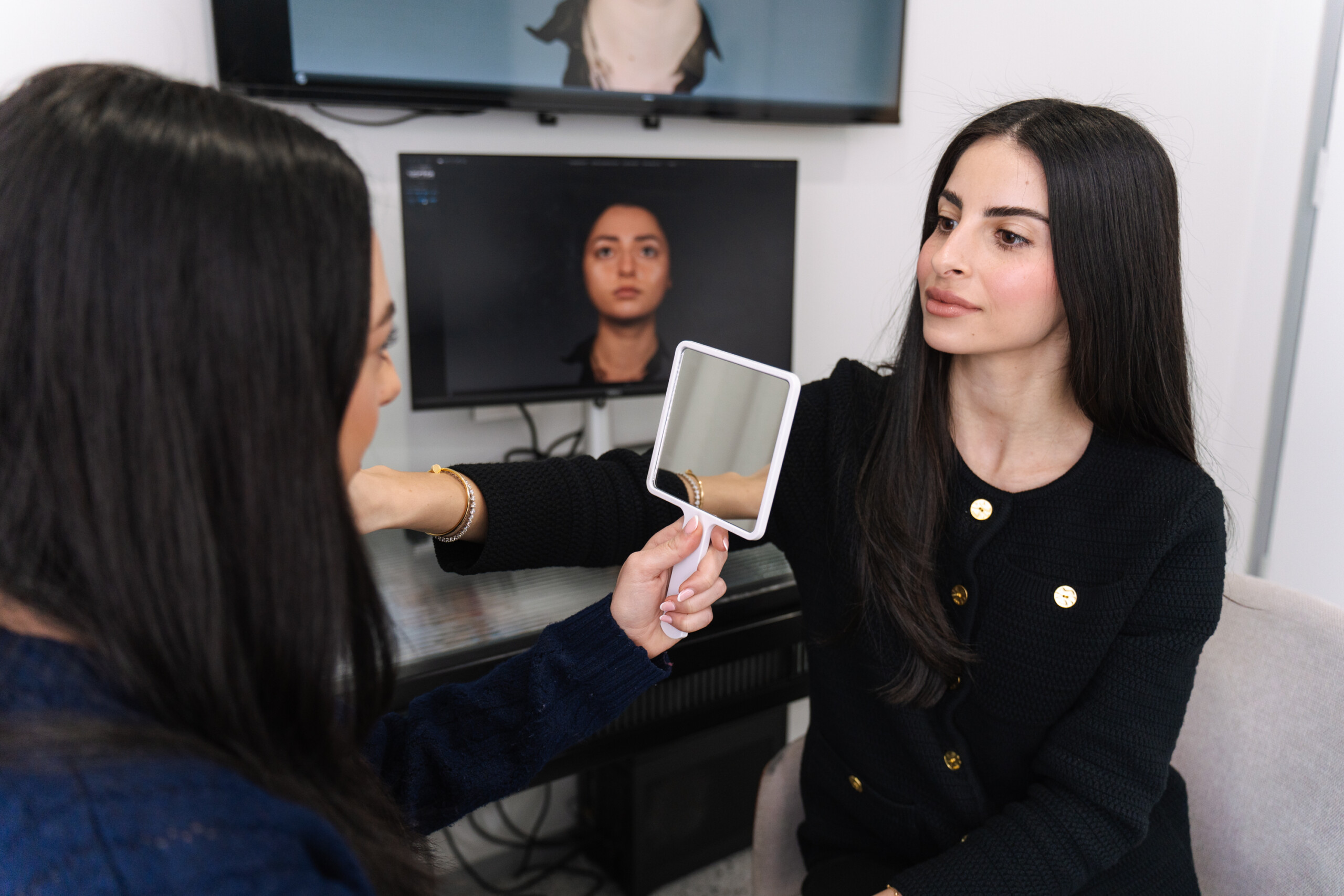Is a chemical peel appropriate for sensitive skin?
Acne peels typically contain ingredients like alpha hydroxy acids (AHAs), beta hydroxy acids (BHAs), or other exfoliating agents that help unclog pores and reduce acne
We have a range of peels available to help target acne whilst also being mindful of sensitised skin issues.
Come to any of our clinics for a free consultation and skin assessment with a dermal therapist to find out exactly which treatment is recommended for your skin.
How long does it take for acne peels to be effective?
The effectiveness of acne peels can vary based on several factors, including the type of peel, the severity of your acne, your skin type, and how consistently you use the peels.
Generally, you may start seeing some results after a few treatments, but significant improvements might take several weeks to months. Consistency and patience are crucial when using acne peels. It’s essential to follow a proper skincare routine to maximise the benefits of acne peels and maintain results.
Patients can expect the following:
Immediate effects: After a peel, you might notice some immediate changes like smoother skin texture or a slight reduction in inflammation due to exfoliation.
Short-term effects: Within a few weeks, you may see a reduction in acne, smaller pores, and improved skin tone. However, this can vary widely based on individual skin responses.
Long-term effects: Significant improvement in acne and overall skin condition often takes several months of consistent treatment. Some people may require ongoing maintenance treatments to manage acne effectively.
How many treatments should I have?
Typically, a series of treatments is recommended for optimal results.
The number of treatments needed for acne peels varies based on individual factors like the severity of your acne, your skin’s response to the treatment, the type of peel used, and your skincare goals.
Mild acne: You might notice improvements after 3–6 treatments spaced out over several weeks.
Moderate acne: Usually 6–8 treatments spaced over a few months are necessary to see significant results.
Severe acne: More intensive treatment plans, possibly involving more than 8 sessions, may be recommended. This could involve combining peels with laser treatments for better outcomes.
Will the Acne Control Peel help with acne scarring?
Acne control peels, particularly those containing certain acids like glycolic acid or salicylic acid, primarily target active acne by unclogging pores and reducing inflammation.
While they can help improve the appearance of some types of acne scars like PIH or PIE (Post Inflammatory Hyperpigmentation/Erythema), their efficacy in treating established acne scars is limited.
For deeper or more pronounced acne scars like ice pick scars or boxcar scars, other treatments such as laser therapy, microneedling, chemical peels with stronger agents, or dermal volumisation with subscision might be more effective.
What other treatments are effective in treating acne?
Contour Clinics offers various in-clinic treatments to address acne and associated scarring, such as dermal laser therapy, microneedling, and radiofrequency (RF) skin needling.
These procedures aim to reduce acne, improve skin texture, and minimise scarring throughout the treatment journey.
For best options, please come in for a consultation with one of our highly experienced and knowledgeable Skin & Laser Therapists.





























